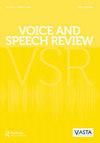Origins of Theatre Performance and Voice Training in Canada: Consciously Bringing Trauma-Informed Voice into View
IF 0.6
Q1 Arts and Humanities
引用次数: 0
Abstract
ABSTRACTThis article highlights the origins of performance training and voice pedagogy in Canada developed, in part, through the work of Michel Saint-Denis and Iris Warren. It further connects the origins of performance voice to the social sciences, highlighting the historical influences that psychodynamic therapeutic approaches have had toward informing somatic voice methodologies and pedagogy. By revisiting one thread within the historic collaboration between these fields, the article encourages actively revisiting cross-disciplinary collaborations to support knowledge-creation; which has the potential to advance both fields and encourage the development of trauma-informed, embodied frameworks to support integrated pedagogies and accessible interventions across disciplines.KEYWORDS: Performancevoicetraumacross-disciplinarypolyvagal theory Disclosure statementNo potential conflict of interest was reported by the author.Notes1. While other voice and speech training methodologies have historically been taught, and continue to be taught globally, naming and detailing other approaches would exceed the scope of this paper. The historical thread which is being investigated and followed throughout this article is focused primarily on the origins of one methodology of voice that began, in part, by Iris Warren and later influenced Kristen Linklater. It is my hope that this article encourages further historiographic research and scholarship in our field.Additional informationNotes on contributorsShannon VickersShannon Vickers is Professor of Theatre Voice in the Faculty of Arts at the University of Winnipeg. She is an interdisciplinary artist-scholar with publications ranging from prolific research-creation in professional theatres across Canada, to impactful scholarship. Shannon has provided voice, text, and dialect coaching for theatrical productions across Canada. She is the recipient of The Dudley Knight Award for Outstanding Vocal Scholarship. The first season of her research podcast, Voicing Creativity, mobilizes research and artistry from leaders in the Arts and Humanities across Canada. Shannon is the Editor of the Voice and Speech Review.加拿大戏剧表演和声音训练的起源:有意识地将创伤知情的声音带入视野
摘要本文重点介绍了表演训练和声音教学法在加拿大的起源,这在一定程度上是通过米歇尔·圣丹尼斯和艾瑞斯·沃伦的工作发展起来的。它进一步将表演声音的起源与社会科学联系起来,强调了心理动力治疗方法对告知躯体声音方法和教学法的历史影响。通过重新审视这些领域之间的历史合作,文章鼓励积极地重新审视跨学科合作以支持知识创造;它有可能推动这两个领域的发展,并鼓励发展了解创伤的具体框架,以支持综合教学法和跨学科的无障碍干预措施。关键词:表演、声音、创伤、跨学科、多迷走神经理论披露声明作者未发现潜在的利益冲突。虽然其他语音和语音训练方法在历史上一直被教授,并将继续在全球范围内教授,但命名和详细介绍其他方法将超出本文的范围。整篇文章所调查和遵循的历史线索主要集中在一种声音方法论的起源上,这种方法论部分由Iris Warren开始,后来影响了Kristen Linklater。我希望这篇文章能鼓励我们这个领域进一步的史学研究和学术研究。作者简介shannon Vickers shannon Vickers是温尼伯大学文学院戏剧声乐教授。她是一位跨学科的艺术家学者,其出版物从加拿大专业剧院的多产研究创作到有影响力的奖学金。香农为加拿大各地的戏剧作品提供声音、文字和方言指导。她是Dudley Knight杰出声乐奖学金的获得者。她的第一季研究播客“发声创意”动员了加拿大艺术和人文学科领袖的研究和艺术。香农是《声音与演讲评论》的编辑。
本文章由计算机程序翻译,如有差异,请以英文原文为准。
求助全文
约1分钟内获得全文
求助全文
来源期刊

Voice and Speech Review
Arts and Humanities-Visual Arts and Performing Arts
CiteScore
1.00
自引率
66.70%
发文量
51
 求助内容:
求助内容: 应助结果提醒方式:
应助结果提醒方式:


